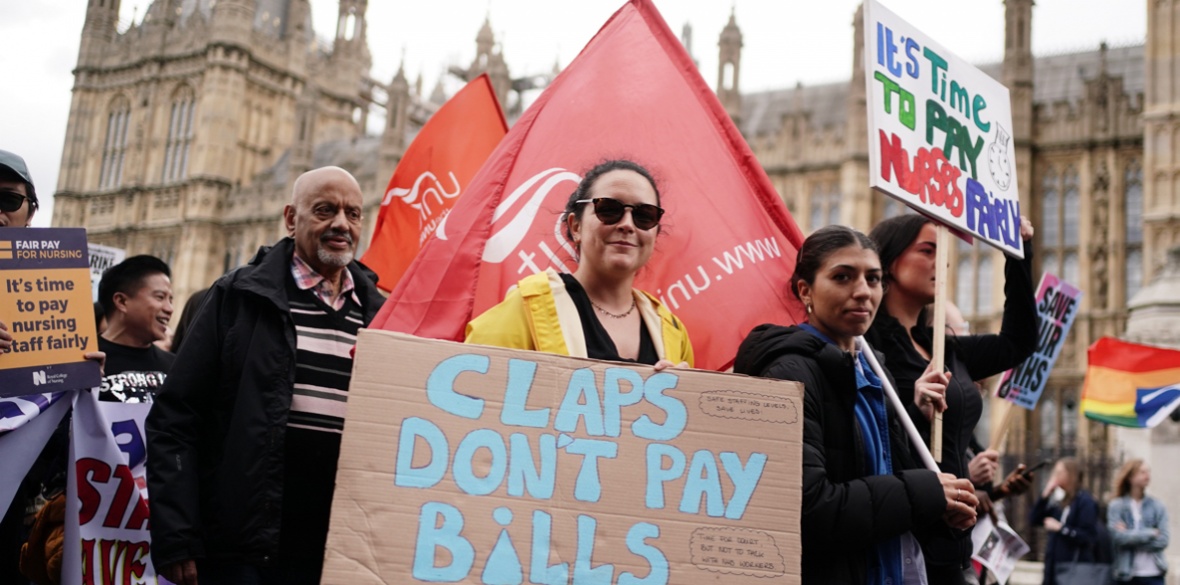Activist hopes her fame draws attention to Mexico’s missing

By Ruth E. Hernandez Beltran
New York, Apr 27 (EFE).- A Mexican woman named by TIME magazine as one of The 100 Most Influential People of 2023 is hopeful that the recognition will raise awareness about the plight of tens of thousands of people who have gone missing in Mexico.
“The first thing that passed through my mind was the possibility to make heard this cry of grief that we are living in Mexico, so cruel that we can call it a crime against humanity,” Maria Herrera Magdaleno told EFE in New York, where she traveled for this week’s Time 100 Summit and Gala.
“That they take your children this way, should not be,” said the 73-year-old mother of eight who has seen four sons “disappeared,” apparently at the hands of organized crime.
In the course of searching for her sons, Doña Maria, as she is known, came into contact with other families and emerged as a leader of the movement demanding action from authorities.
Exasperated by the lack of official support, some of those families have taken it upon themselves to excavate clandestine graves.
On Aug. 28, 2008, Herrero’s sons Jesus and Raul Trujillo left the family’s hometown in the western state of Michoacan with five work colleagues on a business trip to the southern state of Guerrero.
The seven men, ranging in age from 19 to 27, were last seen on the night of Aug. 28 at a bar in Guerrero.
Two years later, Luis Armando and Gustavo Trujillo – against their mother’s wishes – set out for the Gulf coast state of Veracruz to conclude a piece of business to help the family defray the expenses of the search for their brothers.
Luis Armando and Gustavo never reached their destination.
“My first intention was to let myself die, I did not resign myself to living without my four sons. I believe that the strength came from above, from the infinite, from my God, and I decided to go out and keep looking,” Herrera recounted with tears in her eyes.
She joined with other parents to create a network of families of the missing that now includes nearly 200 groups in 26 of Mexico’s 32 states.
The activists want to change society “because what hurts the most is to have to leave this so inhuman, so cruel Mexico to our loved ones that live inside us, to future generations,” Herrera said.
The families are doing the work “that the state should be doing because it is the government that is propitiating that our loved ones are disappeared,” she said.
Herrera blames attempts in 2013 and 2018 to her sons Miguel Angel and Juan Carlos, respectively, on corrupt police who were trying to intimidate her.
“The threats continue. With that they wish to say ‘pipe down already, shut up already,’ but they are not going to accomplish it because every time this happens to me, I shout louder,” she told EFE.
“They are still doing it, and not only with my sons. That’s why I see it’s not organized crime, it’s institutionalized crime and the fact that they have Genaro Garcia Luna here, gives me strength to keep saying that it is the same corrupt state that has us in this situation,” Herrera said.
Garcia Luna, who was Mexico’s public safety secretary from 2006-2012, is awaiting sentencing in the United States after being convicted by a federal court of taking bribes from Mexican drug cartels.
EFE rh/dr









 History of Indigenous boarding schools in U.S. Northwest
History of Indigenous boarding schools in U.S. Northwest